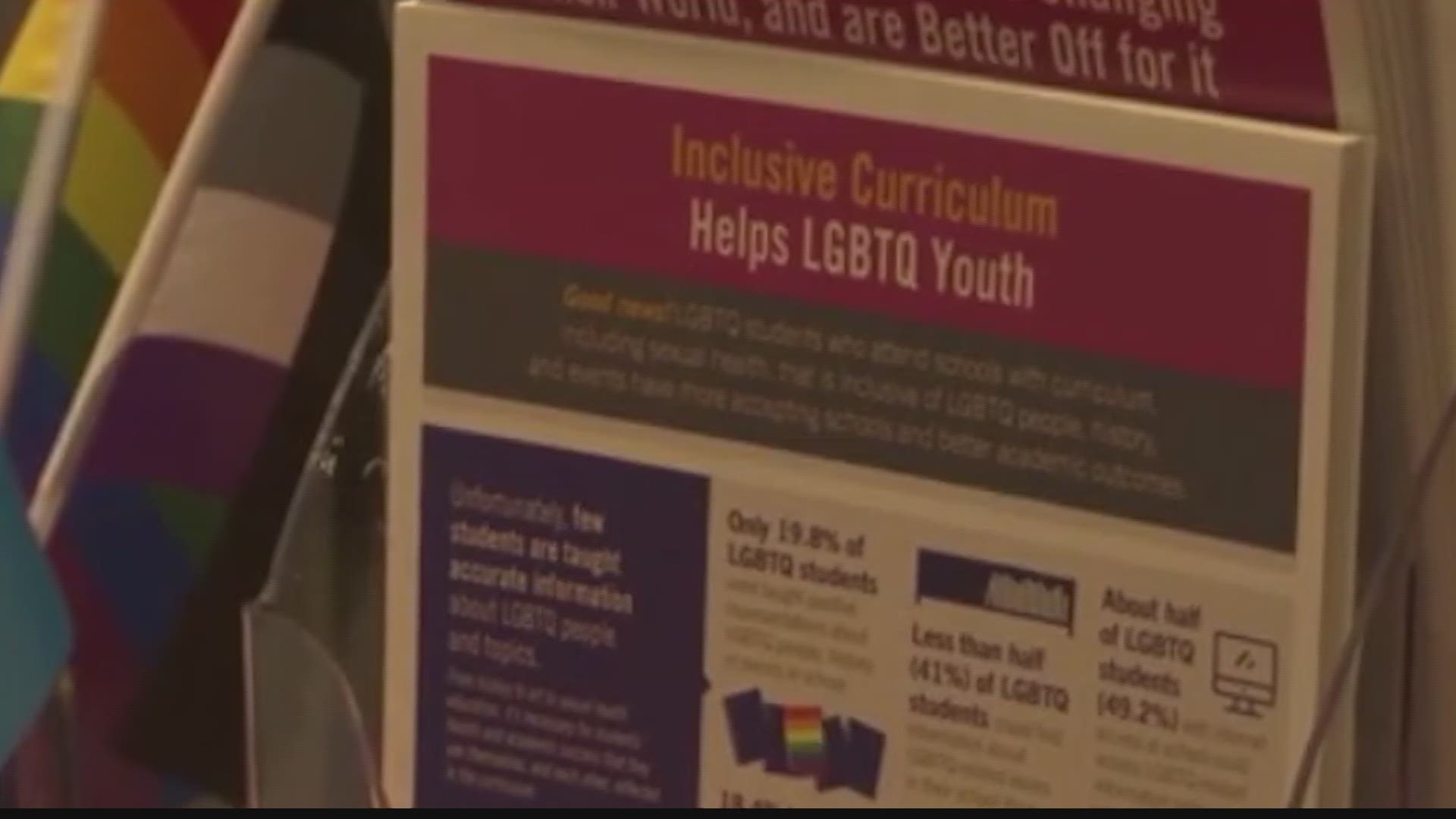HUNTSVILLE, Ala — We are all feeling the effects of the pandemic. But, young people might be struggling more than we know, and young people who are part of the LGBT+ community could be having an especially tough time.
Our Sydney Stallworth spoke with a therapist who says she’s noticed some changes in her clients over the past few months.
Dr. Sarah Mulder tells us, “Rates of suicidality-- and that includes thinking about suicide as well as planning, contemplating, or attempting-- have increased across the board for the general population… Then, when we talk about LGBTQ youth, who are already at higher risk for suicidality… to see that increase even more? It’s really scary.”
Dr. Sarah Mulder is a licensed clinical psychologist who practices privately, but is with the Longwood Psychological Center in Huntsville. She tells our reporter, “I would say probably about 75 to 80 percent of my caseload identify in some way, shape or form as part of the LGBTQ+ community.”
During the summer of 2020, one in four young adults reported that they’d contemplated suicide, and 40 percent of LGBT+ youth considered taking their own lives in 2020.
Dr. Mulder tells our reporter, “I have a lot of youth that live with families who they’re maybe not out to, or families who are maybe not as supportive.” She adds, “COVID has really limited access to medical and mental health care in a lot of ways. A lot of my trans youth have had appointments cancelled or pushed back because of medical facilities not wanting to take on procedures or appointments that are not ‘essential’.”
Dr. Mulder says checking in could save a life. She says, “One of the most important myths about suicide that we need to break is ‘talking about it raises risk for it’. That is not true and there is an abundance of research that supports that.”
We met with Kate Pimmel, Chair of GLSEN Huntsville. As a mother of high school- age kids, she sees the struggles firsthand. She tells our reporter, “A lot of us are worrying about how to properly parent our kids through a situation like this and a lot of us aren’t sure.”
GLSEN helps school administrators and teachers provide an inclusive and safe environment for students who identify as LBGT+. Though school looks a lot different these days, we’re told students are still facing the same issues.
Pimmel says, “They struggle with negative remarks. They’re not seeing themselves reflected either in the media or their curriculum at school.”
GLSEN has taken support groups and training online during the pandemic.
Click here to connect with GLSEN on Facebook.
Studies show, it’s important for families to talk about mental health and parents, now could be the time to spark the conversation.
To connect with Dr. Sarah Mulder, contact her through her website, sarahmulderpsychology.com
Dr. Mulder is also involved with Trans Family Support Services. She tells us some of her clients enjoy the organization's support groups and youth group meetings. Find more information on how to get involved on their Facebook Page.
Need help, information, or just someone to talk to? Here’s a list of resources.
The Trevor Project: Provides crisis intervention and suicide prevention services to LGBT+ youth.
24/7 phone help: 866-488-7386 Click here to text or chat with someone now.
National Suicide Prevention Hotline: 800-273-8255
Crisis Services North Alabama: If you need to find comfort, compassion and empathy, please call the HELPline 24 hours a day at 256-716-1000 or text 256-722-8219 from 4pm-11:30pm.
CARE Services, Inc.: CARE provides LGBTQ teen social and support groups for ages 14-19.
PFLAG Huntsville: PFLAG Huntsville‘s stated mission is to “serve families, friends, allies, and LGBTQ persons in the Hunstville area through education, support, and advocacy.” They host peer support meetings, socials, and other events.
It Gets Better Project: National organization to empower LGBTQ youth and their families. They also have a list of national and state-by-state resources.
GLSEN: The Gay Lesbian Straight Education Network works to train educators and staff about how they can create schools that are safe and free from bullying and harassment.
Huntsville City Schools: The district has a variety of resources for kids experiencing bullying. Most public schools have some sort of online or text reporting for students and families.

